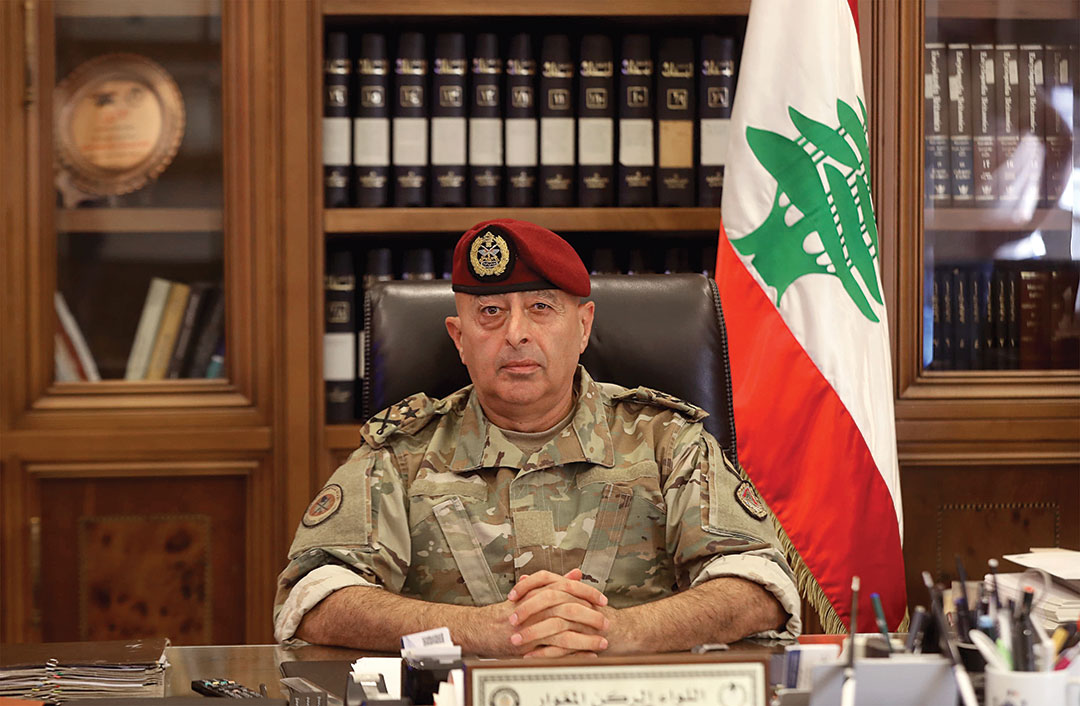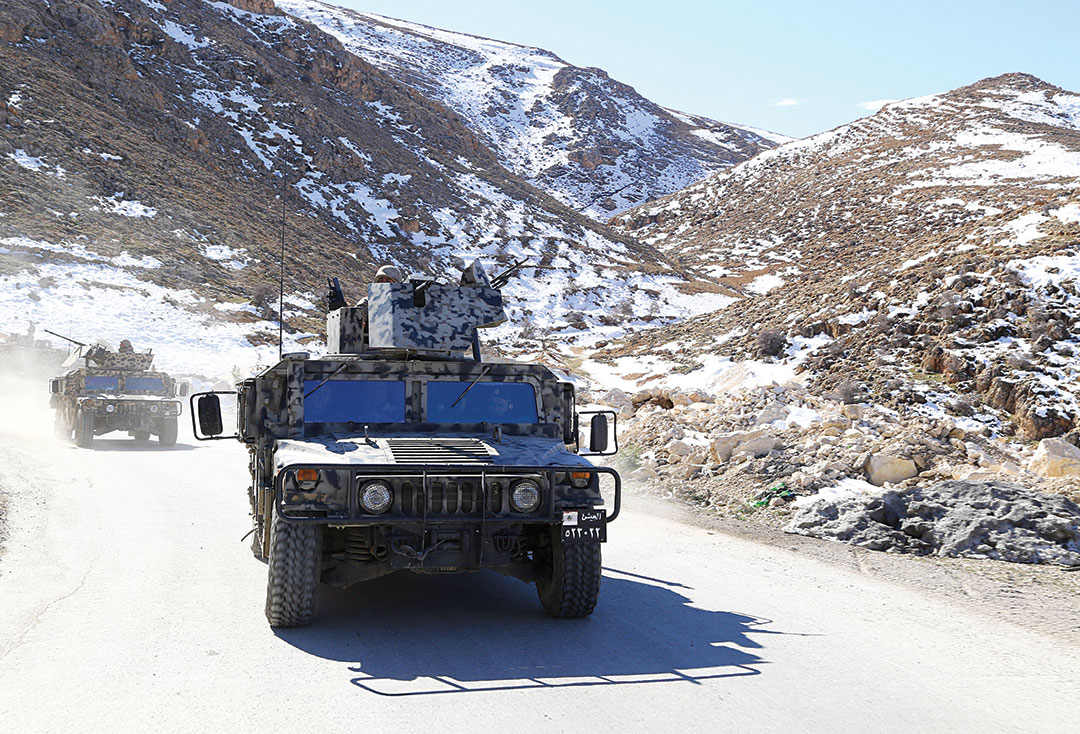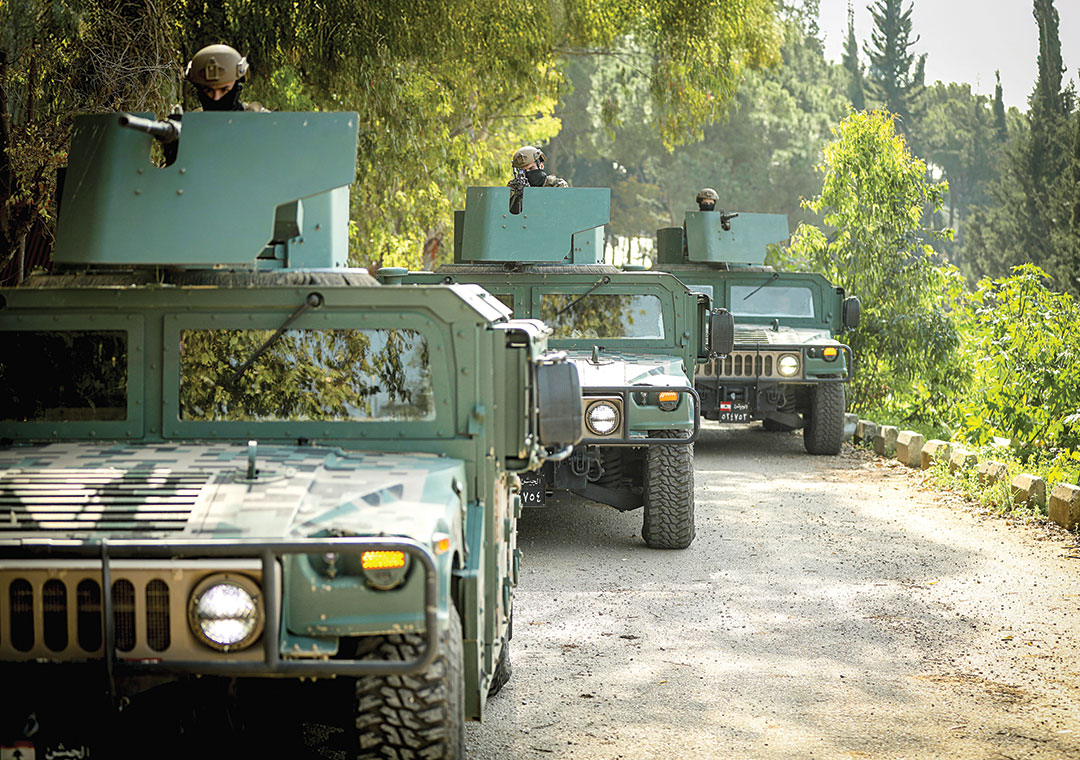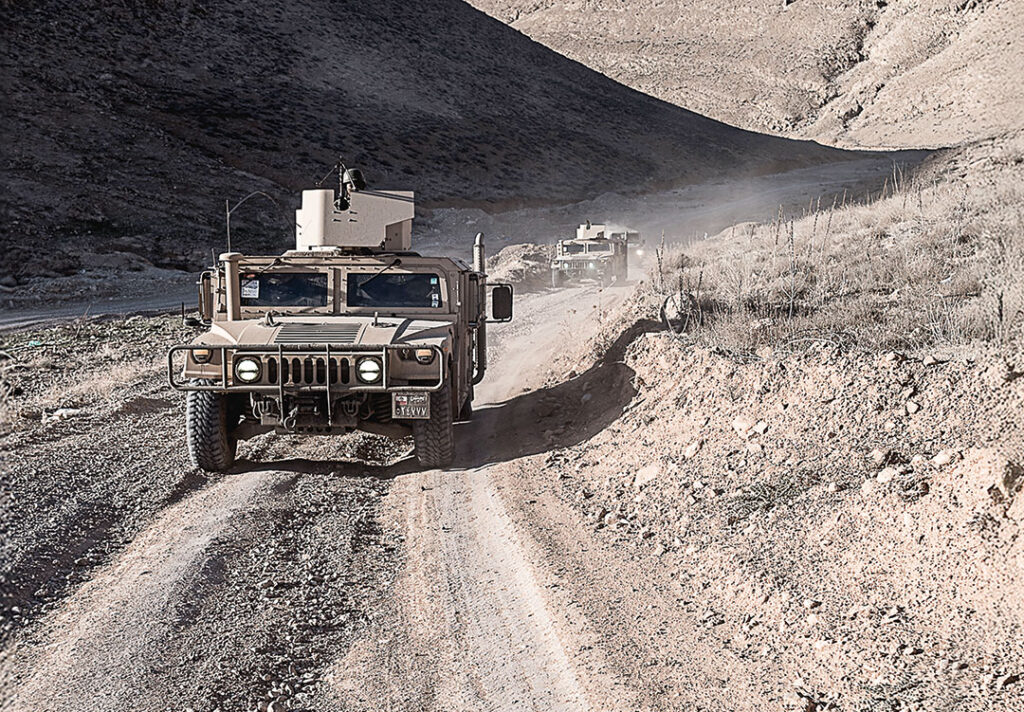The cohesion of security institutions during or after crises is evidence of the military’s loyalty and the complexity of its strategic planning to overcome difficulties and challenges. This is primarily due to the wisdom and experience of security commanders, who are key to the success of modern armies in avoiding failures and maintaining the security and sovereignty of the state.
Many countries have experienced crises and wars and failed to maintain cohesion on the homefront, with disastrous results for civil peace and stability, not only in the country itself but also in the region, as conflicts often extend beyond borders, especially in a conflict-ridden region such as the Middle East.
We must highlight the success of the Lebanese state in the face of several crises, especially the Lebanese civil war that turned into proxy wars supported by several regional parties in the streets of Beirut. Despite the years of infighting and massive destruction that befell Lebanon, the Lebanese state prevailed with wisdom and caution and built professional Armed Forces that are proud of their national identity beyond the confines of narrow sectarian affiliations.

Once the dust of the civil war had settled in 1989 and Lebanon began its journey of recovery, the Lebanese Armed Forces stood out among other state institutions in their ability to carry out missions and reestablish security. The recovery of the Lebanese military exceeded expectations. This only could happen under a multilevel command structure and a control system that has strategic as well as backup plans to face challenges and keep pace with changes on the ground. This is primarily due to the solid institutional structure of the Lebanese state and military, good coordination between security forces, and effective management of resources.
Effective management of resources was first demonstrated by the military’s willingness to appoint its most capable officers to sensitive leadership positions. As in the rest of the military organization, the status and effectiveness of individual units lie in the professionalism of its commanders and their readiness and commitment to enforce laws and carry out orders.
A commander must possess leadership qualities, a history of military achievements, integrity and military ethics when dealing with subordinates. This is why the military leadership nominated Maj. Gen. Mohammed Hussein Al-Mustafa to the post of Secretary-General of the Supreme Defense Council. His field experience in fighting terrorists and his leadership of the Marine Commando Regiment and the 2nd Brigade during times that required military intervention to preserve national security are testimony to his wisdom, courage and loyalty to the country.

It is necessary to first highlight the role of the Supreme Defense Council, the establishment of which was based on the National Defense Law of September 16, 1983 (Chapter II General Organization of National Defense).
The council consists of the president of the republic as its head, the prime minister as his deputy, and the ministers of defense, foreign affairs, finance, interior and economy as members.
The Supreme Defense Council plays a vital role because it decides — its decisions kept secret — how to implement the defense policy of the state as defined by the Council of Ministers, with particular attention given to defense mobilization, including the following key issues:
• Military service and conscription
• Academic mobilization
• Mobilizing economic activity in agriculture, industry, finance and commerce
• Mobilizing health and medical activity
• General mobilization of the state and population, especially the civil defense
• Mobilizing guidance and awareness activities
The Supreme Defense Council also allocates defense tasks, along with the necessary directives and instructions, to relevant ministries and agencies, follows up on their implementation, and approves the equipment and materiel allocations for these tasks.
As for the role of the secretary-general, the decree establishing the council stipulates that he is mainly responsible for “collecting and updating information from competent departments and developing studies and reports that enable the responsible authorities to make appropriate decisions. In this regard, all concerned agencies must automatically provide the General Secretariat of the Supreme Defense Council with all information related to defense and security. The General Secretariat can also request information from various ministries and public administrations to complete the security and defense files and studies it is preparing.”

Parallel to his role as secretary-general, Maj. Gen. Al-Mustafa is a member of the Military Council, responsible for key tasks in Ministry of National Defense agencies, including promotions, formations, budgets and appointments. He also chairs the cybersecurity national team responsible for developing a plan to tackle cybercrime and preparing a national strategy to institutionalize cybersecurity work, in addition to chairing the National Disaster and Crisis Response Coordination Committee.
Through this committee, which includes representatives from all ministries, departments and agencies concerned with disaster management, Maj. Gen. Al-Mustafa played a pivotal role in directing national response efforts to the crisis resulting from the hostilities that threatened the security and safety of the community and required national intervention and actions from a variety of different departments.
After October 7, 2023, conflicts escalated into a war that resulted in widespread destruction and loss of life, the internal displacement of more than 1.3 million people, and the destruction or damage of more than 90,000 physical assets, including infrastructure, houses, schools, roads and farmland.
Thanks to his decisive leadership and dedication to his work as the head of the National Committee, Maj. Gen. Al-Mustafa quickly activated the National Operations Room under the direct order of the Prime Minister to ensure coordinated responses at the national and local levels and intervened with international humanitarian organizations to provide for needs such as food and medical care, with a primary focus on providing safe and dignified shelter for displaced people in Lebanon.
Plans were activated at the central level and coordinated with local branches and operations rooms in the governorates. The major general also oversaw the mobilization of ministries and security agencies, and the activation of standardized operating procedures that fall within the general framework of the National Response Plan. The national plan that the committee developed was updated to include the roles and responsibilities of all ministries, departments and national bodies.
Maj. Gen. Al-Mustafa sought to have the plan endorsed by the Council of Ministers so that it could serve as the official and legal framework for responding within the powers and capabilities of all concerned parties. The plan includes several emergency scenarios. Standing instructions to act have been developed for those scenarios, including earthquakes, floods, wars, forest fires, and internal and external displacement. Roles are clearly assigned at all stages of preparedness, response and early recovery, requiring professional coordination among those involved. Despite the enormous challenges caused by the ongoing economic and financial crises that have plagued Lebanon for more than five years, the major general insisted on optimizing coordination among public sector capabilities and directing all members representing their ministries and directorates to work together under the committee’s umbrella. This helped maintain a cohesive national response.
These achievements were highlighted by his ability to turn initial moments of chaos into a state of organized coordination at the level of the committee’s work, and to keep the prime minister informed of daily facts and procedures to reach strategic decisions that take into account public safety and financial conditions. Technology was harnessed to enhance the effectiveness of the response with the launch of a dashboard platform that provided the committee with real-time information on shelter locations, the number of displaced people, and their humanitarian needs by collecting, collating, and visualizing data about displacement.
Advanced digital tools and real-time dashboards tracked needs, services and population movements, which enabled more accurate and effective targeting of support. These tools generate maps and reports on the severity of damage to support real-time decision-making and evidence-based resource allocation. Satellite imagery helps quantify damage and quickly assess needs.
As head of the committee, Maj. Gen. Al-Mustafa sought to uniformly apply public communication and community engagement strategies throughout the response. While some agencies coordinated directly with communities and center heads to collect data and ensure service delivery, others lacked staff for this type of direct coordination. This state of affairs was replaced by use of a daily situation report, which disseminated statistics and updates through social media platforms as part of a communications strategy to ensure wider reach and more timely updates to the public.
Despite challenges, Maj. Gen. Al-Mustafa maintained unity of effort in the face of the crisis, reinforcing the principle of joint work among institutions and establishing a successful model for handling emergencies. In short, his performance as head of the National Committee reflects an effective model of crisis management and coordination of national efforts.
Because the National Committee was established to manage anticipated risks of any national disaster or crisis based on indicators that call for proactive measures in the first place, the major general, as head of the committee, performs his security role as Secretary-General of the Supreme Defense Council in parallel, thereby collecting and analyzing security information and providing advice in the decision-making process on issues that could threaten national security.
He briefs the political leadership daily on all threats and indicators related to national security that could lead to national crises affecting national, economic, health, social or environmental security
This role is continuing effectively in a new era and under a new government that has pledged to extend its sovereignty over all Lebanese territory and is working diligently to confine weapons to the state.
Lebanon is therefore working to implement U.N. Security Council Resolution 1701. The big challenge for the region is for this resolution to be implemented by all parties. The Lebanese side is focused on establishing security in border regions. This requires the deployment of Lebanese forces to the area south of the Litani River and the recruitment of about 5,000 soldiers to fill this gap. It also requires firm decisions from the military command and the government and a strong will to help from the international donors.
Training and equipping this number of soldiers requires a significant budget to pay salaries and build barracks and careful recruitment to ensure social diversity. Security vetting requires serious work by an entity with executive powers and a professional leadership that has experience in Lebanese military institutions. It must be free from political and regional tensions and loyal to the country. These qualities are found in various leaders of the Lebanese military.
As for the challenges facing Lebanon, Maj. Gen. Al-Mustafa says:
Lebanon has endured challenges few nations could withstand — overlapping security threats, severe economic and financial crises, scarce resources, natural disasters, large-scale displacement, and the aftermath of a devastating war demanding urgent reconstruction. Added to these are issues of uncontrolled weapons, border management, smuggling, organized crime, terrorism, and limited resources for national disaster preparedness. Yet, Lebanon remains vibrant and rich in talent, capable of reclaiming its place as the “jewel of the East” and the “bond between two poles.” As members of the military institution devoted to the nation’s honor, we affirm that supporting the Lebanese Army and security forces with proper equipment, arms, and training is the essential path toward a sovereign, lawful, and institutional state.

